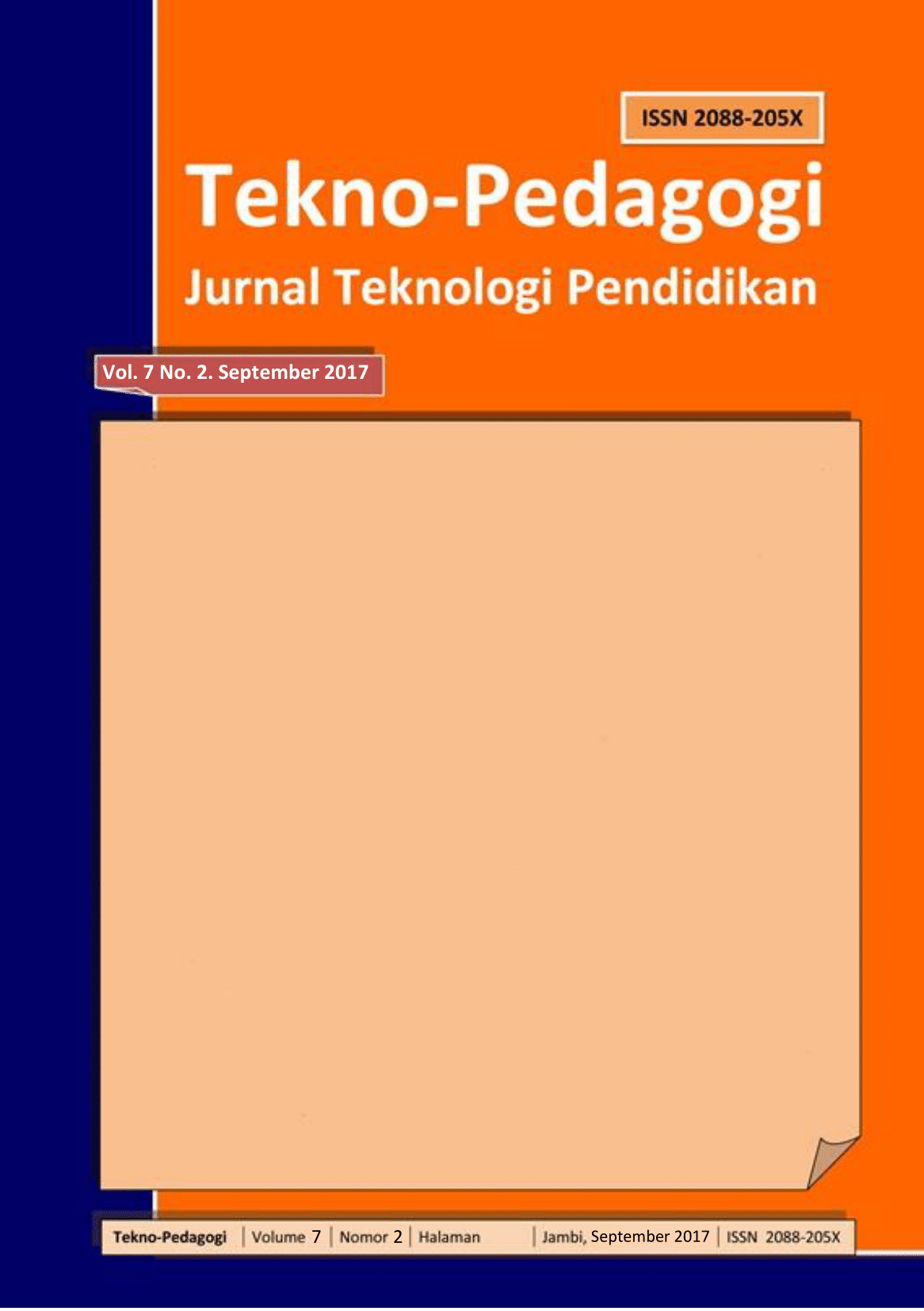Elementary School Teachers' Perceptions of Science Practicum During the Limited Face-to-Face Learning Period
DOI:
https://doi.org/10.22437/teknopedagogi.v7i2.32813Keywords:
Perception, Science Practicum, Limited Face-To-Face LearningAbstract
This research aims to describe elementary school teachers' perceptions of science practicum during the limited face-to-face learning period at State Elementary School 182/I Protected Forest in understanding teachers' perceptions of science practicum during the limited face-to-face learning period. This research was conducted at State Elementary School 182/I Protected Forest. Research data was obtained by conducting interviews with class teachers who implemented science practicum (as main data) carrying out documentation (as supporting data). After conducting interviews and documentation, the data was analyzed qualitatively using Miles and Huberman data analysis. The results of this research indicate that primary school teachers' perceptions of science practicum during the face-to-face learning period are limited, first of all, absorption of stimuli or objects from outside the individual. Science practicum teachers gain knowledge or information from several sources such as teacher books, student books, practice books, the internet and YouTube. Second, for understanding science practicum, the teacher understands science practicum using existing sources, from these sources he can understand the meaning of science practicum, the science practicum tools and materials used, and the steps for science practicum. The third is assessment or evaluation of science practicum. From the teacher's responses there was a positive assessment of the science practicum. The conclusion obtained from this research is that the teacher's perception of science practicum during limited face-to-face learning can be seen from the teacher's response, from absorption of stimuli or objects from outside the individual, understanding or understanding and assessment or evaluation.
Downloads
References
Acesta, A. (2014). Penerapan pendekatan keterampilan proses sains untuk meningkatkan hasil belajar siswa dalam pembelajaran IPA. Jurnal Ilmiah Pendidikan Dasar, 1(2), 96-106.
Al Fath, A. M. (2015). Pengaruh motivasi, lingkungan, dan disiplin terhadap prestasi belajar siswa pada mata pelajaran ipa kelas v sdn 19 banda aceh. Visipena, 6(1), 1-11.
Bimo, Walgito. (2010). Pengantar Psikologi Umum. Yogyakarta: Andi OFFESET
Kusuma, C. S. D. (2015). Pentingnya guru dalam pengembangan minat belajar bahasa Inggris. Efisiensi: Kajian Ilmu Administrasi, 13(2), 66-84.
Lexy J. Moleong. (2010). Metodologi Penelitian Kualitatif Edisi Revisi, Bandung: PT Remaja Rosdakarya.
Rahmawati, R., & Haryani, S. (2014). Penerapan praktikum berbasis inkuiri untuk meningkatkan keterampilan proses sains siswa. Jurnal Inovasi Pendidikan Kimia, 8(2).
Robbins, Stephen. (2014). Perilaku Organisasi (Edisi 16). Salemba Empat
Santoso, D., Munawar, W., & Sriyono, S. (2016). Merancang Asesmen Kinerja Pada Pembelajaran Prakarya Teknik Las Berorientasi Produk Di Smk. Journal of Mechanical Engineering Education (Jurnal Pendidikan Teknik Mesin), 3(1), 33-37.
Sastrawan, K. B. (2016). Profesionalisme guru dalam upaya meningkatkan mutu pembelajaran. Jurnal Penjaminan Mutu, 2(2), 65-73.
Sopian, A (2016). Tugas, peran, dan fungsi guru dalam pendidikan. Raudhah Proud To Be Professionals: Jurnal Tarbiyah Islamiyah, 1(1), 88-97.
Sugiyono. (2014). Metode Penelitian Pendidikan: Pendidikan Kuantitatif, Kualitatif dan R&D. Bandung: Alfabeta.
Uce, L. (2016). Realitas aktual praksis kurikulum: analisis terhadap KBK, KTSP dan Kurikulum 2013. Jurnal Ilmiah Didaktika, 16(2), 216-229.
Umi, U. (2015). Penerapan pendekatan saintifik melalui model project based learning untuk meningkatkan ketrampilan proses dan hasil belajar siswa kelas IV SD negeri seworan, Wonosegoro. Scholaria: Jurnal Pendidikan Dan Kebudayaan, 5(1), 24-38.
Downloads
Published
How to Cite
Issue
Section
License
Copyright (c) 2017 Noviana Efrina

This work is licensed under a Creative Commons Attribution 4.0 International License.





